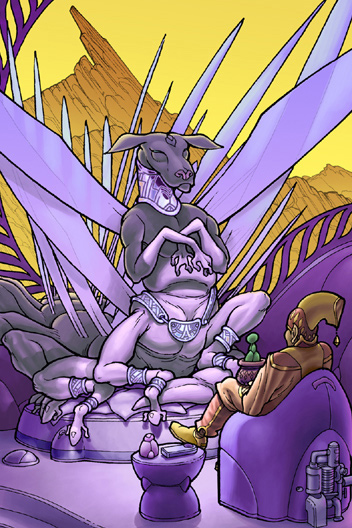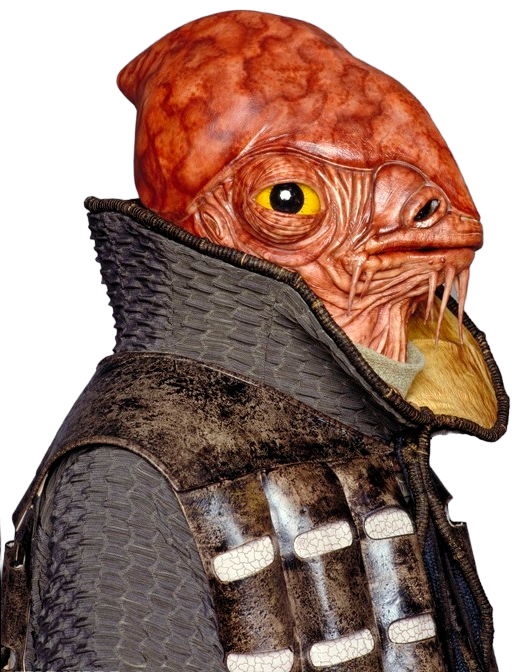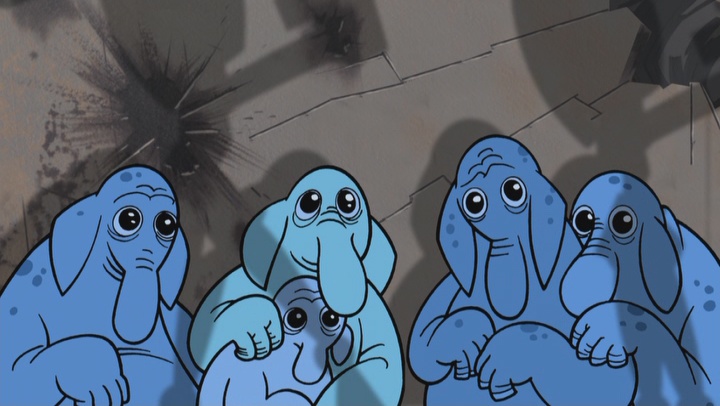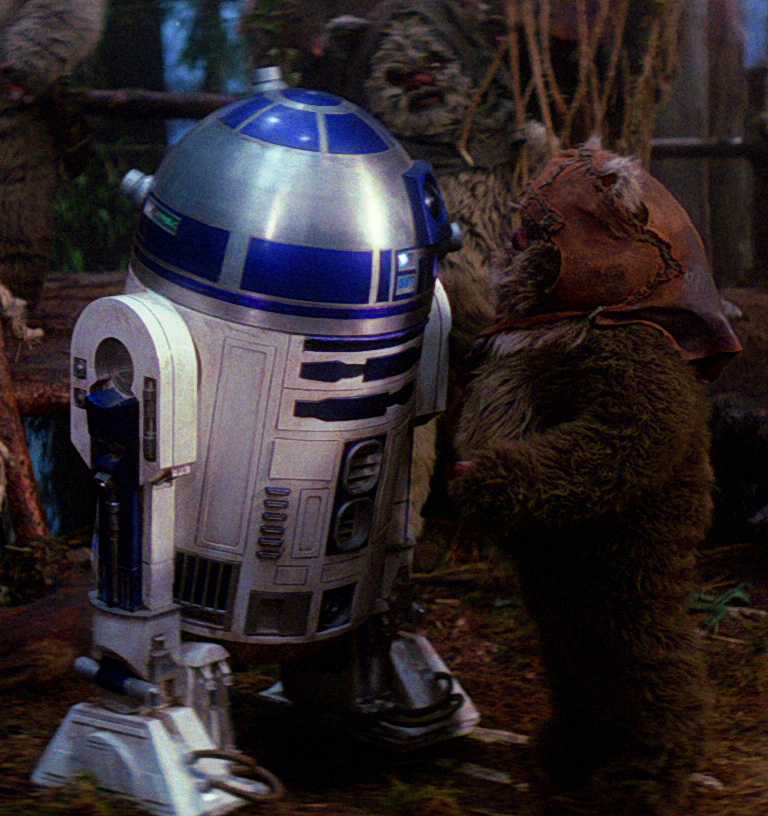Obo Rin was a controversial Human sentientologist and xenobiologist who worked for the Galactic Empire. Under commission by Lieutenant Pandur on behalf of the Emperor's personal servant, Darth Vader, Rin wrote the Catalog of Intelligent Life in the Galaxy as a reference for other scholars and Imperial personnel. Rin's correspondence with Pandur, Vader, and Major Vontenn, the Imperial Liaison Officer of Sentientology Studies, revealed him to be an Imperial loyalist and obsequious personality. However, Rin failed to endear himself to Major Herrit, an Imperial Intelligence officer who was also involved in the project. This enmity was at least in part due to Rin's extravagant research expenses—totaling nearly one million credits during production of the first installment of the Catalog. Despite an attempt by Herrit to discredit Rin and expose what Herrit alleged was a falsified curriculum vitae, Vader, through his aide Captain Solistein, insisted that Rin continue his work and that Herrit assist him by obtaining a Duinuogwuin corpse for dissection. Herrit died during the mission, and Rin went on to produce a revised edition and further updates to the work without interference as a member of Vader's personal staff. He remained active, affiliating himself with the remnants of the Empire after the defeat of Emperor Palpatine and the rise of the New Republic.
Rin's research drew on previous publications, classified data, personal observations, interviews, and dissections of the species under study. However, Rin's pro-Imperial leanings colored his work, turning it into pure propaganda at times. For instance, his Catalog claimed that the Mon Calamari species had no contact with the outside galaxy until Imperial scouts visited their world, and he described several species that had been enslaved by the Empire as willing laborers toiling for the New Order. Rin was a proponent of the theory that for a species to be considered sentient it had to be able not just to ponder abstract concepts but also to communicate such abstraction to others. He proposed a universal definition of life by which sentientologists could distinguish living species from other entities, such as droids, and he rejected the likelihood of the evolution of silicon-based life. Rin held that a species had to be understood in the context of its environment, and his Catalog included detailed overviews of the homeworlds of the lifeforms discussed. Despite his espoused loyalties to the New Order, Rin occasionally expressed sympathy for species he deemed to have been unfairly stereotyped in the galaxy.
Obo Rin was a Human male trained as both a sentientologist and a xenobiologist. His curriculum vitae showed that he had obtained two doctoral degrees from the Academy at Sab Rufo, an institution located on the planet Sab Rufo in the Inner Rim. The document also noted that during the Galactic Civil War, Rin served as that institution's Director of Sentientology. Rin claimed to have conducted extensive postdoctoral research. For example, his credentials showed that he had studied at the Three Rings University of Social Sciences under the tutelage of the famed sentientologist Ditwar Logas, and that he had earned further degrees from the Maxet Institute of Technology.

Rin wrote his Catalog of Intelligent Life in the Galaxy at the behest of Darth Vader.
During the Galactic Civil War, Obo Rin sent a proposal to the Galactic Empire to undertake a major research project: a work that would describe in detail the sentient species of the galaxy. Darth Vader, Dark Lord of the Sith, took a personal interest in the project, and Rin soon received a commission from the galactic government to undertake his proposed research. The assignment came via Lieutenant Pandur, who was serving as Imperial Liaison Officer of Korfo II, a planet in the Core Worlds.
With this approval, Rin began his investigations. He based his findings on personal observations, interviews with members of the species under consideration, and dissections of cadavers. The sole exception was his research on the Charon—a species that inhabited a pocket dimension known as Otherspace; for information on the Charon, Rin relied on an inebriated merchant for whom Rin had bought drinks in a cantina on the planet Duron. Rin's subsequent reports had to be sent through the appropriate channels by way of Pandur. Another administrative contact, Major Herrit of Imperial Intelligence, took charge of allocating funds, personnel, and other materials to the sentientologist. Rin's work also fell within the purview of the Commission for the Preservation of the New Order (COMPNOR).
Rin eventually completed the first installment of what he envisioned to be a much greater work, entitled the Catalog of Intelligent Life in the Galaxy. In the draft manuscript, Rin included a short introduction outlining his theoretical approach to the definitions of life and sentience, and focused entries on those species he deemed to be of particular interest to the Empire—whether as potential threats or potential opportunities. He included information on each species's physical description, homeworld, temperament, culture, and a representative quote. Rin also provided a numerical representation of each species's relative abilities in various aptitudes. In total, Rin covered forty-four species, ranging from the Abyssin to the Xi'Dec. Rin also noted that his entry on the Charon, although based on hearsay, was included so that Darth Vader could analyze it and come to his own conclusions as to its degree of reliability.
Rin sent the text to Lieutenant Pandur and the credit vouchers for reimbursement to Major Herrit. His expense report—including requests for 10,000 for a night's stay on Barab I, 37,200 for the chance to speak with a Duinuogwuin, and 152,317 for transportation to the Kaelta system—totaled almost a million credits. Rin also requested an escort of stormtroopers to aid him in obtaining specimens for dissection. The scientist indicated that the findings were still in their preliminary stages and that he anticipated that continued work on the greater project would keep him occupied for several standard years.

Rin's rival, Major Herrit, died trying to procure a Duinuogwuin cadaver for the scholar.
The first installment of Rin's work was received favorably by Pandur and Vader. Herrit, on the other hand, contacted Vader to protest Rin's writings, questioning the veracity of both the document and of Rin's claimed academic background. Herrit averred that not only was the Academy at Sab Rufo non-existent, but that there was no such place as Sab Rufo at all. He dismissed the Three Rings University of Social Sciences as "a compu-order diploma house," and presented the Maxet Institute of Technology as a trade school that lacked the accreditation to bestow upon Rin the degrees the sentientologist claimed to have earned there. Herrit also took issue with Rin's expenditures, holding that the claimed sums were exorbitant. Accordingly, the major ordered the Office of Budgetary Control to deny Rin's request for reimbursement. In conclusion, Herrit held that Imperial Intelligence was better positioned to compile a work about sentient species than Rin could ever be. The officer thus urged Darth Vader to reconsider any further assignments for the scientist and to hand the project over to Imperial Intelligence.
Darth Vader replied via a communique from his personal aide, Captain Solistein. The message expressed the Dark Lord's disapproval of Herrit's presumptuous recommendations and the unrequested background check on Rin—Solistein further revealed that Vader had himself visited Sab Rufo and knew it to be a real place. The Sith Lord commanded Herrit to rescind his order to deny Rin's reimbursement requests, and specified that the sentientologist be allowed to continue his work unhindered—with the stormtrooper escort he had requested. Solistein's message further conveyed Vader's order that Major Herrit personally locate and provide a Duinuogwuin cadaver for Rin to dissect. Herrit died trying to fulfill this command.
Vader's patronage and Rin's position as the preeminent Imperial sentientologist allowed him to push his research to even greater levels as he moved beyond his first draft of the Catalog. Rin also gained access to high-level Imperial officers and dignitaries, who provided him with even the most difficult-to-find data.
Another Imperial functionary, Major Vontenn, who served as the Imperial Liaison Officer of Sentientology Studies, became involved in the project. Vontenn sent requests for changes and updates as well as corrections of the work Rin had already submitted. Rin eventually sent a revised version of his first installment of the Catalog of Intelligent Life in the Galaxy, covering the same species as the previous edition. The work's purview changed slightly; in the revised version, Rin claimed that the species covered represented "the most important sentient species in the galaxy." He also indicated that the document was intended for use by all sentientologists authorized by the Empire. The volume maintained the introduction from the first edition, but it introduced a new format for the species covered, partitioning information into regularized sections for each species while also discontinuing the representative quotes. In the revised draft, Rin admitted that his information on the Sedrian species was based on his personal theories, pirate tales, and intercepted communications from members of the Alliance to Restore the Republic. In his cover letter to Vontenn, Rin conveyed his sympathies to Herrit's family for the major's death.
Rin continued to add information to the Catalog. For example, he compiled reports on the Ailon, the Yevetha, and at least one species with the ability to dramatically alter its shape—a trait exhibited by the Ugors, covered in his first installment of the work. He added information to the Catalog to help scouts comprehend and analyze new lifeforms they might encounter, and to make first contact with intelligent beings. Rin's guide eventually achieved wider distribution. One of the species covered in the work, the Mon Calamari of Dac, deplored the Catalog for its propagandistic claims that Imperial scouts were the first outsiders to make contact with the Mon Calamari species. Rin and his work were infamous on Mon Calamari for years after the publication of his Catalog.

The Mon Calamari of Dac deplored Rin's work for ignoring their participation in the Old Republic and insisting that the species had instead been first discovered by Imperial scouts.
At some point during the later phases of his research, Rin became a permanent member of Darth Vader's personal staff. He received a communique from Major Vontenn ordering him to compile reports on four amorphous sentient species: the Polydroxol, Proteans, Shi'ido, and Stennes Shifters. This addendum to the Catalog, Vontenn explained, was intended to replace information on these species that had been lost from government databanks during the transition from Galactic Republic to Galactic Empire.
Over the next four standard months, Rin shifted his focus to these species. He contacted Moff Bandor, the Human officer in charge of the planet Questal, for information on the Proteans, only to find that the officer was preoccupied with Rebel Alliance activity on his planet. Nevertheless, Bandor's staff sent Rin Protean medical records, which the sentientologist forwarded to Vontenn. Rin paid slicers to infiltrate the Karflo Corporation's computers to find information about the Polydroxol; he forwarded the slicers' fees to Vontenn as well. Rin's attempts to locate members of the Stennes Shifter species proved fruitless, and the xenobiologist eventually gave up. For his report on the Shi'ido, Rin attempted to contact Senior Anthropologist Vandolae, a Shi'ido who was employed at the University of Coruscant. However, Rin received the reply that Vandolae was currently conducting fieldwork on Centares, studying the life of fringe spacers. Rin traveled to that world to interview the Shi'ido academic, only to discover his colleague dead at the hands of two of his research subjects. Due to these setbacks, Rin contacted Vontenn to request more time to do fieldwork beyond the four months he had already taken.
Despite the fall of Emperor Palpatine and the splintering of the Empire into rival factions, Rin had become quite famous by the rise of the New Republic, and his universal definition of life was still used by scouts. His works retained currency, even among officials of the New Republic. Captain Zgorth'sth of the New Republic's Department of Threat Assessment referenced Rin's entry on the Ailon species, albeit with the caveat that Rin's work had to be understood in the Imperial context in which it was written. In 16 ABY, Rin was still active. After the Black Fleet Crisis, Rin updated his entry on the Yevetha. Zeven Mallat of the Imperial Security Bureau forwarded the file to Grand Moff Gann of Sector 5. The New Republic Intelligence Service intercepted the transmission and added Rin's work to their dossier of information on the Yevetha and the Koornacht Cluster.

Rin framed the enslavement of species such as the Ortolans as voluntary servitude to the Empire.
Obo Rin expressed great satisfaction in his work, relishing the chance to expand the galaxy's base of knowledge on poorly understood and little-documented species. Rin's writings were primarily drawn from previous research on the species under consideration and his own fieldwork. The scientist relied on a diverse pool of previously compiled research, both published and unpublished, such as classified Imperial experiments and corporate records. Rin's original field research primarily involved participant observation of alien societies and post-mortem inspections of alien cadavers. He occasionally included hearsay and spacer tales in his work, although he carefully noted when his writings drew from such dubious sources.> Once he received his Imperial commission, Rin spared no expense in investigating the species he had selected, paying great sums for specimens to dissect, audiences with powerful beings, fees to slicers to cut into secret databases, and bribes to access other protected materials. Rin maintained an account at the Imperial Bank of Korfo II, where he received reimbursements for his research costs.
Obo Rin presented himself as a die-hard Imperial loyalist, and his work showed a decidedly pro-Imperial bias, venturing at times into pure propaganda. For example, his entry on the Mon Calamari species completely dismissed that people's longstanding participation in the Galactic Republic, instead presenting the falsified claim that survey teams from the Galactic Empire made first contact with the planet Mon Calamari and its inhabitants. Rin further claimed that the Empire only established a presence in the species's system to protect them from Rebel Alliance aggression. Rin also made claims about the Columi making first contact during the reign of the Empire, despite admitting that they were one of the galaxy's oldest civilizations. The xenobiologist described several species that had been enslaved by the Empire—such as the Flakax, Jenet, Ortolans,Squibs, and Talz—as voluntary workers instead. Rin's biases were one source of inspiration for the Iyra sentientologist Tem Eliss to write his own work on sentient species, The University of Sanbra Guide to Intelligent Life, which took a more critical stance on the Empire. Nevertheless, later in his career, Rin also expressed sympathy for species whom he felt were unfairly treated in the galaxy at large. Rin was something of an egomaniac, believing his theories to be brilliant and holding himself to be a giant in his field.

Rin's universal definition of life attempted to distinguish non-living beings, such as droids, from living ones.
Obo Rin adhered to a commonly held definition of sentience that defined a sentient species—he disdained any academic use of the term race—as one with the ability to comprehend abstract concepts. However, he took this a step further, holding that true sentience required not just forming abstract concepts but communicating them as well. The litmus test for this, he averred, was that a species had to be able to discuss a thing's qualities outside the context of the thing itself. By communicating abstractly, Rin believed, species could organize themselves into societies—and species who lacked societies were of little concern to the Empire. Nevertheless, Rin admitted that even trained sentientologists sometimes had difficulty distinguishing non-sentient lifeforms from sentient ones. In his work on shape-changing species, the sentientologist eschewed the label shape-shifters and dismissed the terms polymorph, metamorph, and quasimorph as misleading since they implied that these species were somehow related to one another.
Rin argued that sentient beings such as droids could be distinguished from living species by the fact that species, as biological entities, exhibited characteristics droids did not. In his Catalog, Rin presented what he called a universal definition of life to elaborate on this point. The definition stipulated that life entailed organization into some unique morphological structure, irritability to respond to stimuli in the environment, metabolism to provide energy, reproduction to allow the organism to continue beyond a single generation, and adaptation to allow it to adapt and respond to changes in its surroundings. As to the components of life, Rin argued that carbon and water were the two most important constituents of living matter, a view that placed him at odds with other scholars, who suggested that silicon was a reasonable substitute for carbon in creating the building blocks of organic molecules. Rin acknowledged that such silicon-based lifeforms were theoretically possible, but he wrote that he had never encountered one in his travels. Rin also held that oxygen was the third most common component of life, not due to any unique life-giving powers it afforded, but rather because oxygen was one of the constituent components of water; other molecules could theoretically substitute for it.
In Obo Rin's view, a sentient species could not be understood properly without some knowledge of the homeworld on which it had evolved. His Catalog thus included a great deal of information on various planets that served as the homes of the species detailed, in addition to the information on the species themselves.
Author Troy Denning introduced Obo Rin in Galaxy Guide 4: Alien Races, a book published by West End Games as part of the Star Wars: The Roleplaying Game line in 1989. The book tells of Rin's commission to write the Catalog of Sentient Life in the Galaxy, his patronage by Darth Vader, and his opposition from Major Herrit though a series of communiques in the introduction. This preface establishes Rin himself as the in-universe author of the remainder of the book, which details various alien species for use as characters in the Star Wars roleplaying game.
For the release of the book's second edition in 1994, author Chuck Truett updated the supplement to be compatible with the revised roleplaying rulebook. Truett also included new introductory communiques that establish the reformatted material as a revision by Obo Rin as well, responding to feedback from Darth Vader and Lieutenant Pandur. Obo Rin's revised introduction also hints at an end to the rivalry between himself and Major Herrit, indicating that the latter had died before this revised edition was completed.
Later West End Games sources use Rin as the in-universe narrator for information about sentient species. Obo Rin is also mentioned in Geonosis and the Outer Rim Worlds, published in 2004, and in The Complete Star Wars Encyclopedia, published in 2008.
- Galaxy Guide 4: Alien Races
- Galaxy Guide 8: Scouts
- Galaxy Guide 4: Alien Races, Second Edition
- "Shape-shifters" — Star Wars Adventure Journal 12
- Cracken's Threat Dossier
- "Special Military Unit Intelligence Update" — Star Wars Adventure Journal 15
- Geonosis and the Outer Rim Worlds
- The Complete Star Wars Encyclopedia